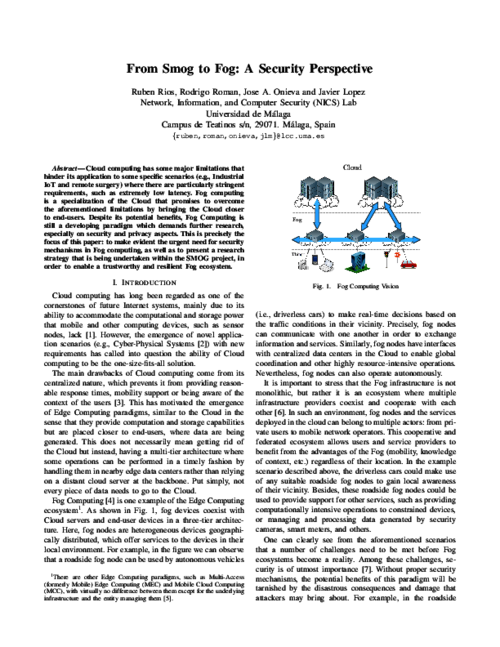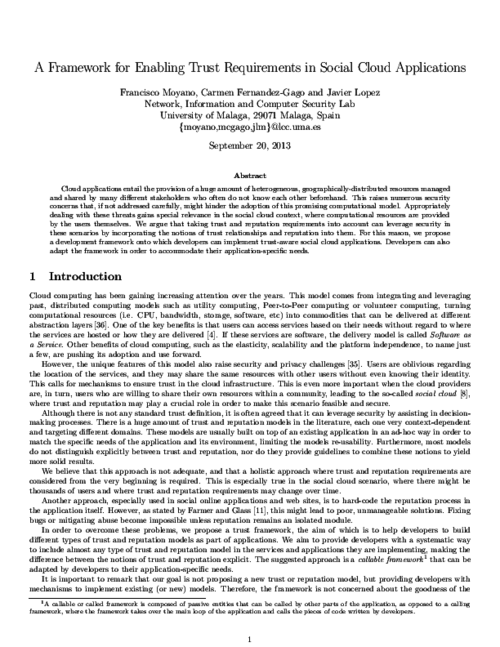2nd IEEE International Conference on Fog and Edge Mobile Computing (FMEC 2017), IEEE Computer Society, pp. 56-61, 06/2017. DOI
Abstract
Cloud computing has some major limitations that hinder its application to some specific scenarios (e.g., Industrial IoT, and remote surgery) where there are particularly stringent requirements, such as extremely low latency. Fog computing is a specialization of the Cloud that promises to overcome the aforementioned limitations by bringing the Cloud closer to end-users. Despite its potential benefits, Fog Computing is still a developing paradigm which demands further research, especially on security and privacy aspects. This is precisely the focus of this paper: to make evident the urgent need for security mechanisms in Fog computing, as well as to present a research strategy with the necessary steps and processes that are being undertaken within the scope of the SMOG project, in order to enable a trustworthy and resilient Fog ecosystem.

Requirements Engineering, vol. 18, issue 4, Springer London, pp. 321-341, Nov 2013. DOI
Abstract
Cloud applications entail the provision of a huge amount of heterogeneous, geographically-distributed resources managed and shared by many different stakeholders who often do not know each other beforehand. This raises numerous security concerns that, if not addressed carefully, might hinder the adoption of this promising computational model. Appropriately dealing with these threats gains special relevance in the social cloud context, where computational resources are provided by the users themselves. We argue that taking trust and reputation requirements into account can leverage security in these scenarios by incorporating the notions of trust relationships and reputation into them. For this reason, we propose a development framework onto which developers can implement trust-aware social cloud applications. Developers can also adapt the framework in order to accommodate their application-specific needs.

 ]
]